This article was co-authored by Pippa Elliott, MRCVS. Dr. Elliott, BVMS, MRCVS is a veterinarian with over 30 years of experience in veterinary surgery and companion animal practice. She graduated from the University of Glasgow in 1987 with a degree in veterinary medicine and surgery. She has worked at the same animal clinic in her hometown for over 20 years.
There are 33 references cited in this article, which can be found at the bottom of the page.
This article has been viewed 15,953 times.
The adrenal glands are tiny glands located near the kidneys.[1] They produce steroids, sex hormones (testosterone, estrogen), and adrenaline.[2] Adrenal disease is very common in pet ferrets and occurs when the adrenal glands secrete too much estrogen and testosterone, either due to hyperplasia (overgrowth) or a tumor.[3] This imbalance in sex hormone levels can make ferrets sick.[4] Adrenal disease does not get better on its own, so veterinary treatment is needed to treat this condition.[5]
Steps
Treating Adrenal Disease with Surgery
-
1Determine if surgery is the right treatment option. For many ferrets, surgical removal of the affected adrenal (‘adrenalectomy’) is the most effective way to treat adrenal disease.[6] If your ferret has an adrenal disease, your vet will consider several factors to determine if surgery is a good idea. These factors include your ferret’s age, presence of other diseases, and the severity of clinical signs.[7]
- If both of your ferret’s adrenals are affected, surgery is not a good idea. Removing both adrenals would lead to significant hormone deficiencies. Your ferret would then need lifelong hormone supplements, which may not be financially feasible.[8]
- If surgery is not an option for your ferret, your vet will recommend medications to treat the symptoms of adrenal disease.[9]
-
2Discuss surgical challenges. The location of each adrenal can make surgery either easy or difficult. Surgical removal of the left adrenal is straightforward. Removing the right adrenal is challenging, though, because it’s attached to the vena cava. The vena cava is the major vein carrying blood back to the heart from the lower half of the body.[10] Removing the right adrenal requires removing the part of the vena cava where the adrenal is attached, making the surgery very challenging.[11]
- If your vet does not have a lot of surgical experience with removing ferret adrenals, they will likely refer you to a veterinary surgeon with more experience.
- Partial removal of the right adrenal gland is not a reasonable treatment option, since it would only slow down the progression of adrenal disease, not cure it.[12]
Advertisement -
3Have your vet remove the affected adrenal gland. If your ferret is a good surgical candidate, your vet will proceed with anesthetizing your ferret and performing an adrenalectomy.[13] Because ferrets can become cold during surgery, your vet will use heating pads or specialized hot water bottles to keep your ferret warm during surgery.[14]
- You will probably be able to take your ferret home the day of surgery.
-
4Monitor your ferret’s recovery. Hair loss is the telltale sign of adrenal disease in ferrets. After an adrenalectomy, a ferret’s recovery will involve hair regrowth. The hair will usually start growing back in about 1 to 2 months and will be fully regrown after about 6 months.[15] The hair might start growing back as soon as 2 weeks after surgery.[16]
- Sometimes, after an adrenalectomy, the remaining adrenal develops a tumor, causing a disease recurrence. Watch your ferret for signs (e.g., hair loss, difficulty urinating, swollen vulva) that adrenal disease has returned.[17]
- The vulva is the external portion of a female’s genitalia.[18]
- Disease relapse occurs in about 40% of ferrets after an adrenalectomy.[19]
Using Medications to Treat Adrenal Disease
-
1Give your ferret melatonin. If your ferret cannot undergo surgical treatment, talk with your vet about available medications, such as melatonin, for ferret adrenal disease. Melatonin is naturally produced in the body.[20] In intact ferrets, it coordinates with hormones produced in the brain to control adrenal sex hormone release. This control is disrupted when a ferret is spayed or neutered, causing brain hormones to continually trigger adrenal sex hormone release.[21]
- Melatonin treatment block the release of these hormones from the brain, thus preventing adrenal sex hormone release.[22]
- Time-release melatonin implants that go under the skin[23] can mimic the body’s seasonal rhythm of melatonin levels.Your vet would use a device to inject the implant under the skin. Every 3 to 6 months, your vet would need to replace the implant.[24]
- Although melatonin can be given by mouth, it is very challenging to give a ferret an oral medication. Ferrets can easily spit pills and liquid medications back out.[25]
- Melatonin is not curative.[26]
-
2Have your vet administer Lupron. Lupron blocks estrogen and testosterone release. It can be given as a muscle injection or as a slow-release implant under the skin. The injection can last up to a few months. If your vet gives your ferret a Lupron injection, you may see some swelling at the injection site; this is normal. [27]
- Although Lupron is a very effective, it is expensive and must be given for the duration of a ferret’s life.[28]
-
3Discuss other medical treatments with your vet. Other than melatonin and Lupron, several other drugs are available, including Mitotane and deslorelin.[29] Remember that, although each drug works a little bit differently, its main function is to suppress sex hormone release from the adrenals.[30] Your vet can determine which drugs will be most likely to work in your ferret.
Caring For Your Ferret
-
1Recognize the symptoms of adrenal disease. A ferret with adrenal disease will have hair loss that typically affects the torso and rear legs. As the disease continues, a ferret may go completely bald. In addition to hair loss, symptoms of adrenal disease include:[33]
- Muscle atrophy (loss of muscle tone). This muscle loss can occur over the abdomen
- Difficult urination in male ferrets
- Swollen vulva in female ferrets
- Enlarged abdomen
- Weakness and tiredness
-
2Feed your ferret a healthy diet. Adrenal disease is not caused by a poor diet.[34] Even still, a healthy diet ensures a ferret receives all the nutrients its body needs. Since ferrets are carnivores, your ferret's diet should contain meat-based protein, such as chicken or turkey. A healthy ferret diet should also contain fat. Commercially available packaged foods are available that would meet all of your ferret’s nutritional needs.[35]
- Your vet can recommend which ferret food to purchase.
- Freeze-dried or frozen commercial foods come in small chunks and would be easy to feed your ferret.
- Since ferrets have short digestive tracts, feed your ferret small meals every few hours.[36] Ferrets like drinking water when they eat, so make sure your ferret’s water bottle is full at mealtime.[37]
- Ferrets cannot digest carbohydrates.[38]
-
3Create a healthy environment for your ferret. A healthy living environment is important to a ferret’s overall health. In ideal ferret living environment is well ventilated, large enough for it to play in, well-stocked with toys, and contains a safe sleeping area (e.g., ferret sleeping box). In addition, a healthy ferret environment:[39]
- Is free of dangerous objects, such as electric wires
- Is situated away from drafts, such as air vents
- Has a shallow water bath, if the ferret enjoys playing in water
- Has an easily-accessible toilet area (e.g., litter box) that is separate from other areas of the cage
-
4Take your ferret to get regular checkups. Regular veterinary checkups can help keep your ferret healthy. The checkups can also serve as early disease detection. Take your ferret to your vet once a year for a physical exam and vaccinations (rabies and distemper). During the appointment, your vet will also take a fecal sample to test for intestinal parasites. If your ferret is over 3 years old, your vet will run other tests, including blood work, x-rays, and a urinalysis.[40]
Warnings
References
- ↑ https://www.hopkinsmedicine.org/health/conditions-and-diseases/adrenal-glands
- ↑ https://www.yourhormones.info/glands/adrenal-glands/
- ↑ http://www.petcarevb.com/ferret-veterinarian/ferret-adrenal-disease.php
- ↑ https://vcahospitals.com/know-your-pet/hormonal-diseases-in-ferrets
- ↑ https://www.ncbi.nlm.nih.gov/pmc/articles/PMC7128698/
- ↑ https://www.petcarevb.com/ferret-veterinarian/ferret-adrenal-disease.php
- ↑ https://vcahospitals.com/know-your-pet/hormonal-diseases-in-ferrets
- ↑ https://www.msdvetmanual.com/all-other-pets/ferrets/hormonal-disorders-of-ferrets
- ↑ https://www.mariposavet.com/adrenal-disease-ferrets/
- ↑ https://www.ncbi.nlm.nih.gov/pmc/articles/PMC1539936/pdf/canvetj00149-0049.pdf
- ↑ http://miamiferret.org/adrenal.htm
- ↑ https://www.petvets.com/blog/ferret-adrenal-gland-disease/
- ↑ https://www.exoticanimalveterinarycenter.com/storage/app/media/Ferrets_and_Adrenal_Disease.pdf
- ↑ https://www.ncbi.nlm.nih.gov/pmc/articles/PMC7110464/
- ↑ http://www.lbah.com/word/ferret/ferret-adrenal-disease/
- ↑ https://www.mspca.org/angell_services/adrenal-disease-in-ferrets/
- ↑ https://www.sciencedirect.com/topics/pharmacology-toxicology-and-pharmaceutical-science/adrenal-disease
- ↑ https://healthlibrary.brighamandwomens.org/Library/DiseasesConditions/Adult/Women/85,P00547
- ↑ http://www.merckvetmanual.com/mvm/exotic_and_laboratory_animals/ferrets/endocrine_disorders_of_ferrets.html?qt=ferrets&alt=sh
- ↑ https://www.sleepfoundation.org/melatonin
- ↑ https://pubmed.ncbi.nlm.nih.gov/17144819/
- ↑ http://www.lbah.com/word/ferret/ferret-adrenal-disease/
- ↑ https://vcahospitals.com/know-your-pet/melatonin
- ↑ http://miamiferret.org/adrenal.htm
- ↑ https://www.petplace.com/article/small-mammals/general/how-to-administer-liquid-medication-to-your-ferret/
- ↑ https://www.dvm360.com/view/rely-clinical-skills-diagnose-ferret-adrenal-disease
- ↑ https://www.vin.com/apputil/content/defaultadv1.aspx?pId=11131&id=3843944
- ↑ http://miamiferret.org/adrenal.htm
- ↑ https://www.mariposavet.com/adrenal-disease-ferrets/
- ↑ https://www.sciencedirect.com/topics/pharmacology-toxicology-and-pharmaceutical-science/adrenal-disease
- ↑ http://www.petcarevb.com/ferret-veterinarian/ferret-adrenal-disease.php
- ↑ https://www.petcarevb.com/ferret-veterinarian/ferret-adrenal-disease.php
- ↑ http://www.lbah.com/word/ferret/ferret-adrenal-disease/
- ↑ https://wcvmtoday.usask.ca/articles/2016/ferret-adrenal-disease-demystified.php
- ↑ http://www.rspca.org.uk/adviceandwelfare/pets/ferrets/diet
- ↑ https://www.pfma.org.uk/ferrets-nutritional-requirements
- ↑ http://petferretcare.net/food-diet/
- ↑ https://www.pfma.org.uk/ferrets-nutritional-requirements
- ↑ http://www.rspca.org.uk/adviceandwelfare/pets/ferrets/environment
- ↑ https://www.animalwelfarefoundation.org.uk/wp-content/uploads/2017/06/Caring-for-Ferrets-1.pdf
- ↑ https://pubmed.ncbi.nlm.nih.gov/18447778/
- ↑ https://wcvmtoday.usask.ca/articles/2016/ferret-adrenal-disease-demystified.php
- ↑ http://www.petcarevb.com/ferret-veterinarian/ferret-adrenal-disease.php
- ↑ https://www.mspca.org/angell_services/adrenal-disease-in-ferrets/
- ↑ https://www.innersouthvets.com.au/desexing-ferrets/
- ↑ http://www.lbah.com/word/ferret/ferret-adrenal-disease/
- ↑ http://www.ferretcentral.org/faq/med/adrenal.html
About This Article
Adrenal disease in ferrets occurs when a ferret's adrenal glands produce too much estrogen and testosterone, and it can lead to hair loss, difficulty urinating, lethargy, an enlarged abdomen, a swollen vulva in female ferrets, and muscle atrophy. If you think your ferret has adrenal disease, it's important that you take it to see a vet so they can recommend the best treatment plan. Generally, vets recommend surgically removing the affected adrenal gland. However, if both of your ferret's glands are affected, your vet will likely recommend medication instead, like melatonin and an injection called Lupron. For advice from our Veterinary co-author, like how to take care of a ferret with adrenal disease, keep reading.
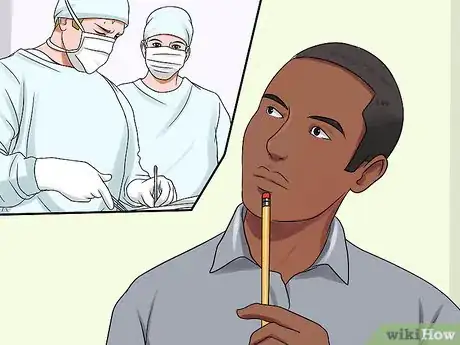
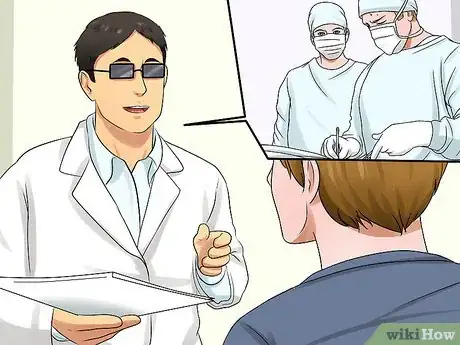
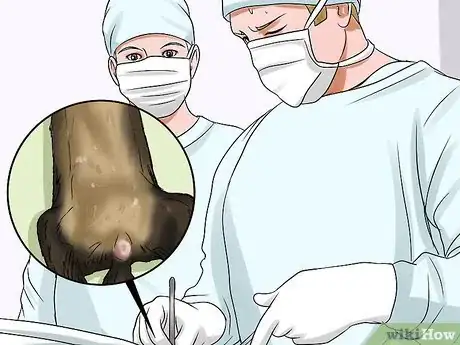

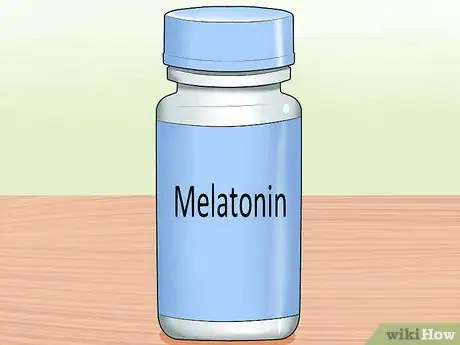
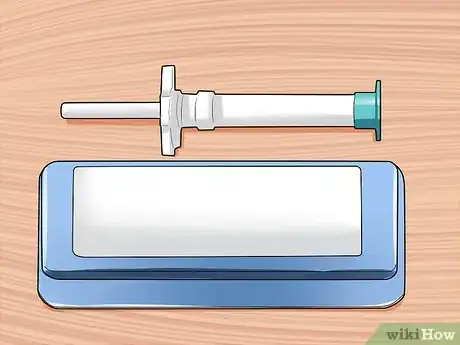
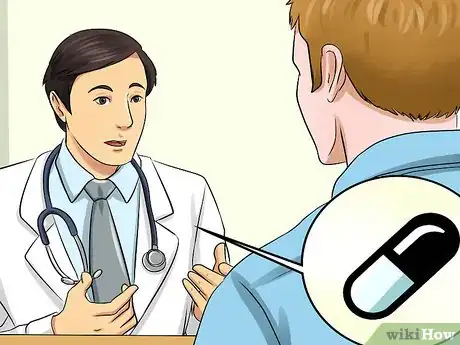
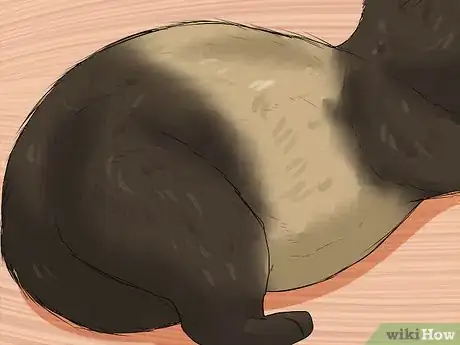

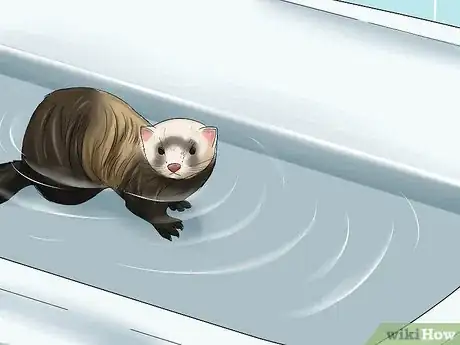
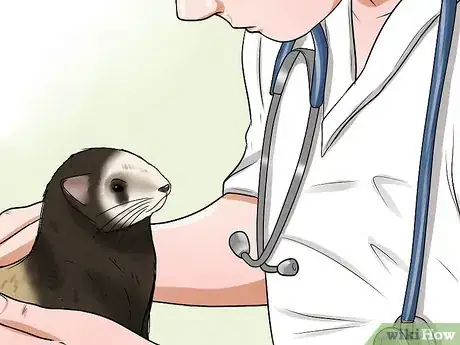
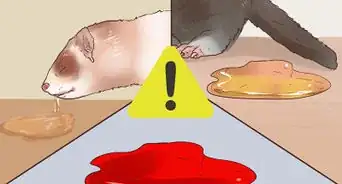
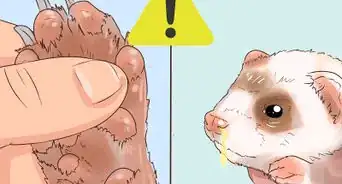
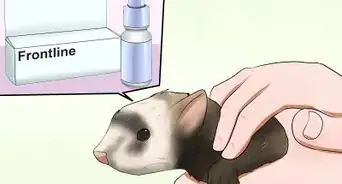
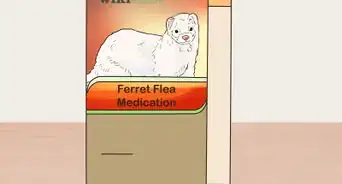







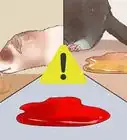
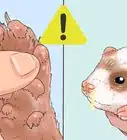
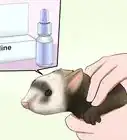





































Medical Disclaimer
The content of this article is not intended to be a substitute for professional medical advice, examination, diagnosis, or treatment. You should always contact your doctor or other qualified healthcare professional before starting, changing, or stopping any kind of health treatment.
Read More...